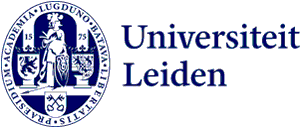
Teaching Tips to improve your work balance
Work balance has been a hot topic at the faculty for several years. A smart approach to lectures can help reduce workload. Three (senior) university lecturers share their tips.

Bert van den Berg, associate professor
'I teach a course in which several tracks from the research master's programme come together. Previously, the concluding presentations were always planned during exam week, in two very full days. Afterwards, the students were completely wasted - and so were the lecturers. At the same time, the approach missed the mark: the course was designed precisely to let students interact with people from other tracks, but the individual nature of the presentations made that difficult.
‘So, when I took over the course, I decided to get students to give group presentations. They almost unconsciously learn to work better together as a result, while the presentations can be fitted into regular lecture weeks. We did decide to give everyone an individual grade, which countered some of the students’ reluctance, and because everyone has their own specialisation, it’s easy to determine what each student’s share in the assignment is. Ultimately, this has made the course load much more manageable, for students and also for lecturers. I think this could apply to more of the current courses. Around me, I see a lot of lecturers still offering that extra hour of guidance, but in doing so, you also put a lot of pressure on young colleagues to also offer extra hours. It would be nice if we could avoid that.'

Tingting Hui, assistant professor
'When I took over a course on interculturality, I understood from the ICLON that it was possible to take exams digitally, as a digital assessment. I was keen to try that out, because it saves paper. And it also makes it easier to analyse the exam: which question was difficult, and which was easy for students? I also think being able to make the assessments anonymously is a great improvement, because you can avoid any possible prejudice.
In terms of the organisation, it also works very well, because you have access to the exams anywhere, so you can grade anywhere. Though online grading doesn’t really reduce your workload, it saves you time, because you don’t have to decode all the students’ different styles of handwriting. Next year we’ll introduce this method of assessment in other courses, also because the students reacted positively to this method of testing.’

Jan Sleutels, associate professor
‘In the thirty years that I have been teaching, I’ve witnessed education becoming increasingly service-oriented. Students have come to expect more and more. Additionally, various systems, protocols, and procedures have been implemented to ensure that we serve students optimally. This combination has led to increased pampering of education. In the past, we lectured, engaged in discussions with students, and put them to work. Now, we have to spoon-feed everything in PowerPoints, instructions, rubrics, model answers, and the like. This has gradually eroded students' own responsibility and significantly increased the workload for teachers.
As a fellow of the Leiden Teachers Academy, I explored ways to counteract this pampering. Alternative educational formats where students have to take more responsibility for their own learning process: let them make choices about topics, approaches, and working methods themselves. Students often find this freedom daunting. To help them, I like to use group assignments where students learn from each other and at the same time learn to work together. Another effective approach is to offer alternatives to the traditional final paper, such as a video, a podcast, or a conference poster. Encouraging creativity helps to draw students out of their comfort zone.
I was able to experiment with these ideas within the Honours College, and. I now also apply them in regular courses and help colleagues to use them. An example is the Philosophy of Science programme in the Core Curriculum, a course with approximately a thousand students a year. How do you ensure that all these students start working with the material on time? Midway through the semester, we now set a 'practical assignment' where students can work together in groups. The assignment is mandatory but not graded. Students decide for themselves what they create. It can be a blog, a comic strip, a video, or a poster. Anything is allowed as long as it relates to the course material and can be read, viewed, or listened to in five minutes. Afterwards, students assess each other's work in Pitch2Peer. This works excellently: students work independently, they usually genuinely enjoy it, and involves very little extra work for the teacher.’
For more information about work balance you can contact the Work Balance in Action group.
